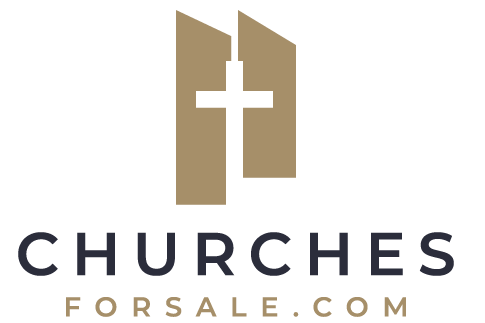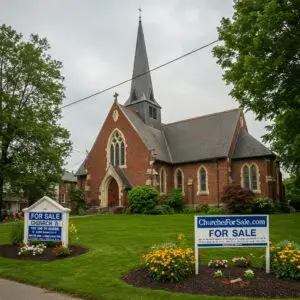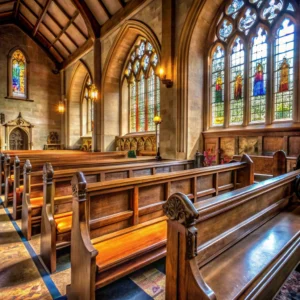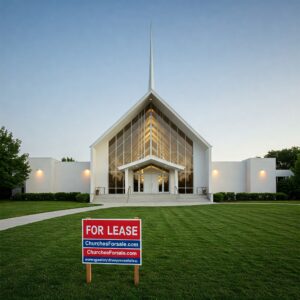
Financing Options for Buying or Refinancing a Church Property
Navigating the world of church real estate can be a complex journey, especially when it comes to securing the right financing. Whether your congregation is searching for new churches for sale, planning a major renovation, or seeking to refinance an existing property, understanding your financing options is essential. The right loan can empower your church to expand its mission, serve more people, and provide a stable foundation for years to come.
Churches face unique challenges when seeking financing. Unlike traditional businesses, churches often rely on donations, tithes, and community support as their primary sources of income.
This means lenders must evaluate different criteria when assessing a church’s ability to repay a loan.Fortunately, there are specialized financial products and institutions designed with the needs of faith-based organizations in mind, making it possible for churches to access the funding they need.
This article will walk you through the major financing options available for purchasing or refinancing church properties. We’ll explore bank loans, bridge loans, and specialized church financing, breaking down each option in simple terms. If you’re searching for churches for sale or looking to strengthen your church’s financial position, this guide will help you make informed decisions and move forward with confidence.
1. Understanding Church Loans
Church loans are financial products tailored specifically for religious organizations. They can be used to purchase new property, build facilities, renovate existing buildings, or refinance current debt. Unlike standard business loans, church loans often take into account the unique structure and income sources of a congregation.
When applying for a church loan, lenders will typically review your church’s financial health, including audited statements, budgets, and donation history. A strong, supportive congregation and clear financial records can improve your chances of approval. Lenders may also ask for a business plan outlining the purpose of the loan and your repayment strategy.
Church loans come in many forms, including mortgages, construction loans, and lines of credit. The best option depends on your church’s specific needs-whether you’re buying your first building, upgrading your sanctuary, or consolidating existing debt.
2. Bank Loans for Churches
Traditional banks and credit unions are common sources of church financing. These institutions offer products like mortgages, term loans, and lines of credit for churches looking to purchase, expand, or refinance property.
Bank loans typically require your church to demonstrate steady income, a solid financial history, and sufficient collateral-often the property itself. Many banks understand the unique nature of church finances and may offer flexible terms or balloon payments, where the full loan amount comes due after a set period, usually five to ten years.
While bank loans can offer competitive interest rates and longer repayment periods, approval can be challenging for smaller congregations or those with irregular income. It’s important to work with banks experienced in church lending, as they can guide you through the process and help tailor a loan to your needs.
3. Bridge Loans for Churches
Bridge loans are short-term financing solutions designed to “bridge the gap” between immediate funding needs and long-term financing or the receipt of pledged donations. For example, if your church needs to purchase a property quickly but is waiting on the sale of another asset or a fundraising campaign, a bridge loan can provide the necessary funds.
These loans are typically easier to secure than long-term mortgages, with faster approval and funding timelines. However, they often come with higher interest rates and shorter repayment periods, usually from six months to three years. Bridge loans are best suited for churches with a clear plan for long-term financing or incoming funds.
Using a bridge loan can help your church act quickly when a desirable property comes on the market or when timing is critical in a real estate transaction. Just be sure to have a solid exit strategy in place to transition to permanent financing.
4. Specialized Church Financing
Many lenders and financial organizations specialize in church and nonprofit lending. These institutions understand the unique needs of churches and offer tailored loan products, such as secured and unsecured loans, construction loans, and ministry-specific financing.
Specialized church lenders may offer higher loan-to-value ratios (sometimes up to 90%), no personal guarantees, and more flexible documentation requirements. Some even provide loans for new church plants or outreach initiatives, making it easier for congregations to grow and serve their communities.
Working with a specialized lender can streamline the application process and improve your chances of approval, especially if your church has nontraditional income or is embarking on a unique project. These lenders often provide personalized service and guidance throughout the financing journey.
5. Construction and Renovation Loans
If your church is planning to build a new facility or renovate an existing one, construction loans are a popular option. These loans provide funding for building projects and are usually structured to release funds in phases as construction progresses.
Construction loans may convert to permanent mortgages once the project is complete, simplifying the transition from building to occupancy. Lenders will typically require detailed plans, budgets, and contractor agreements before approving a construction loan2.
Renovation loans work similarly but are designed for upgrading or expanding current facilities. Both types of loans can help your church create welcoming, functional spaces for worship and ministry, supporting growth and outreach.
6. Refinancing Existing Church Debt
Refinancing allows churches to replace an existing loan with a new one-often at better terms, such as lower interest rates or longer repayment periods. This can reduce monthly payments, free up cash flow, and consolidate multiple debts into a single, manageable loan.
Refinancing is especially valuable for churches that secured loans during periods of higher interest rates or that have improved their financial position since taking out the original loan. Specialized church lenders and banks both offer refinancing options, and the process is similar to applying for a new loan.
Before refinancing, it’s important to review your current loan terms, calculate potential savings, and consider any fees or penalties for early repayment. Refinancing can be a strategic move to strengthen your church’s financial foundation.
7. Alternative and Flexible Financing Solutions
In addition to traditional loans, churches can explore alternative financing options like revenue-based financing, business credit cards, and lines of credit. Revenue-based financing allows repayments to adjust according to your church’s cash flow, making it easier to manage during periods of fluctuating income.
Lines of credit provide flexible access to funds for short-term needs, such as repairs, equipment purchases, or seasonal expenses. Business credit cards can help manage smaller purchases and build credit history for your church.
Some churches also work with denominational loan programs, issue bonds, or seek grants for specific projects. Exploring a mix of financing options can help your church find the best fit for its unique situation and goals.
8. Preparing for the Loan Application Process
Successfully securing financing for churches for sale or refinancing requires careful preparation. Start by gathering comprehensive financial documentation, including audited statements, budgets, and donation records. Create a clear business plan outlining your church’s mission, the purpose of the loan, and a realistic repayment strategy.
Lenders will also want to see proof of legal status, such as articles of incorporation and IRS nonprofit certification. Be prepared to discuss your congregation’s size, giving history, and long-term vision. A strong application packet demonstrates your church’s stability and commitment, increasing your chances of approval.
Consider working with a lender experienced in church financing, as they can guide you through the process, anticipate potential challenges, and help you secure the best possible terms for your church.
Conclusion
Securing the right financing is a critical step for any congregation looking to purchase, renovate, or refinance church property. With so many churches for sale and a variety of loan products available, understanding your options ensures your church can make the best possible decision for its future. From traditional bank loans and bridge loans to specialized church financing, each option offers unique benefits and considerations.
The key to successful church financing lies in preparation and partnership. By gathering thorough financial documentation, crafting a clear business plan, and working with experienced lenders, your church can navigate the loan process with confidence. Remember, the goal is not just to secure funding, but to support your church’s mission and provide a welcoming space for worship and community.
As you explore churches for sale or consider refinancing, take the time to evaluate your church’s needs, financial health, and long-term vision. With the right financing in place, your congregation can focus on what matters most-serving your community, growing your ministry, and building a lasting legacy of faith.






